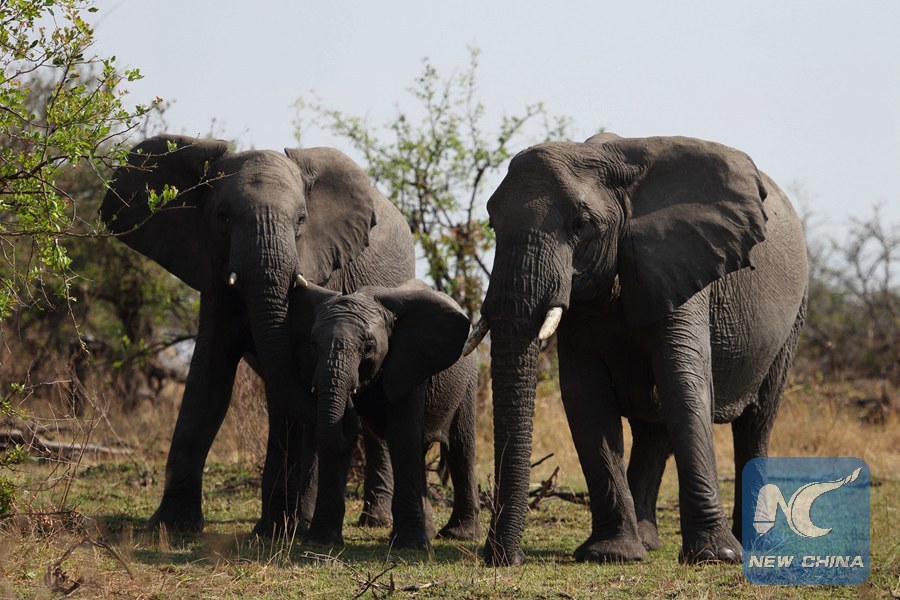
Photo taken on Aug. 17, 2013 shows an elephant family walking in the Serengeti National Park, north Tanzania. (Xinhua/Zhang Ping)
DAR ES SALAAM, April 5 (Xinhua) -- The government of Tanzania with support from WWF, the world's leading conservation organization, has launched the country's largest ever elephant collaring program aimed at protecting the dwindling elephant population, WWF said in a statement on Wednesday.
With almost 90 percent of the elephants lost over the last 40 years in the Selous Game Reserve, a World Heritage site, enhancing rangers' ability to guard the remaining ones from poaching is essential to rebuilding the population, said the statement.
Sixty elephants are expected to be collared in and surrounding the Selous Game Reserve in a span of 12 months, said the statement.
"This will enable reserve management and government rangers to track elephant movements, identify and act against threats in real-time. The use of satellite collars is a proven effective measure to monitor wildlife movements and provide enhanced security," said the statement.
The collaring program is being led by researchers and veterinarians from the Tanzania Wildlife Research Institute (TAWIRI) in collaboration with the Tanzania Wildlife Authority (TAWA) and the Tanzania National Parks Authority (TANAPA).
The statement said data collected through the collars will help teams predict where the elephants and their herds are moving to anticipate the dangers they may face, such as the risk of encountering poachers.
"It can also alert teams if the herd is heading toward community settlements to help move them away from farmlands and reduce the risk of human-elephant conflict," said the statement.
"In a landscape as vast as Selous where poaching continues, better information on the whereabouts of elephants is critical to anticipate the risks they may encounter, including fatal attacks by poachers," said Asukile Kajuni, WWF Tanzania Deputy Programs Coordinator for the Elephant and Ruvuma landscape programs.
He added: "The collars mark an important first step in the zero poaching approach we are taking by enabling wildlife protection teams to be on the front foot against poaching attacks."
Kajuni said the key to the success of elephant collars is ensuring all relevant teams have access to the data to help inform decision making.
The project will provide secured elephant movement data on a mobile phone to enable key security and research personnel to access the data, he added.
In the past 40 years, rampant poaching of elephants for ivory has seen the population in Selous decimating, with numbers plunging to around 15,200 from 110,000.
In 2014, UNESCO placed Selous on its List of World Heritage in Danger due to the severity of elephant poaching.
WWF is working with the government of Tanzania to adopt a zero poaching approach using a tool kit to protect the country's elephants and ecosystems in one of Africa's last wilderness areas.

